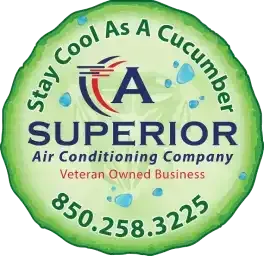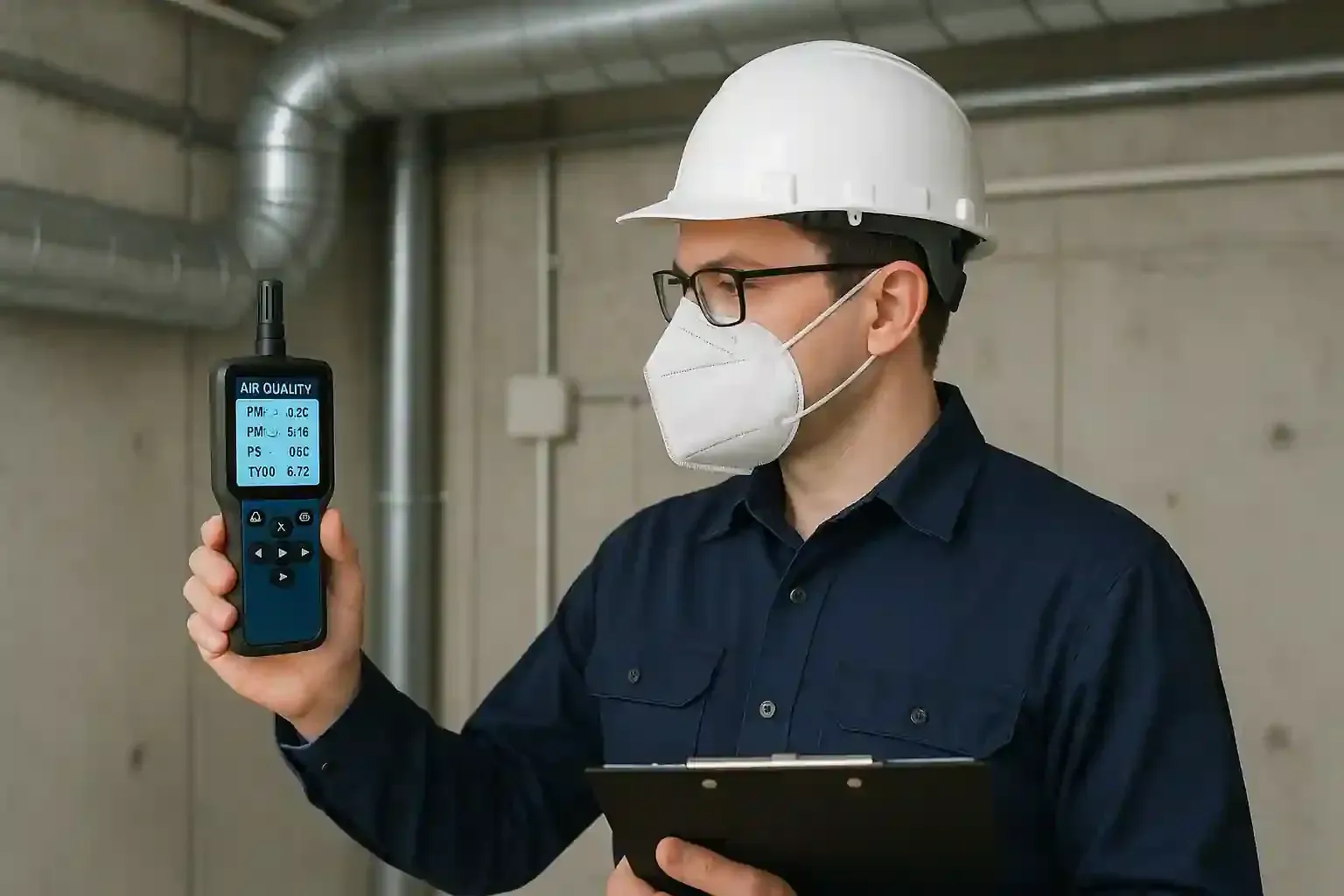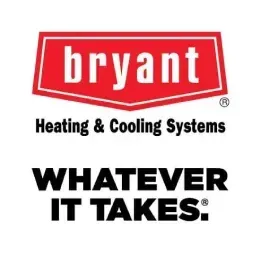Blog
A Superior Air Conditioning Company Blog
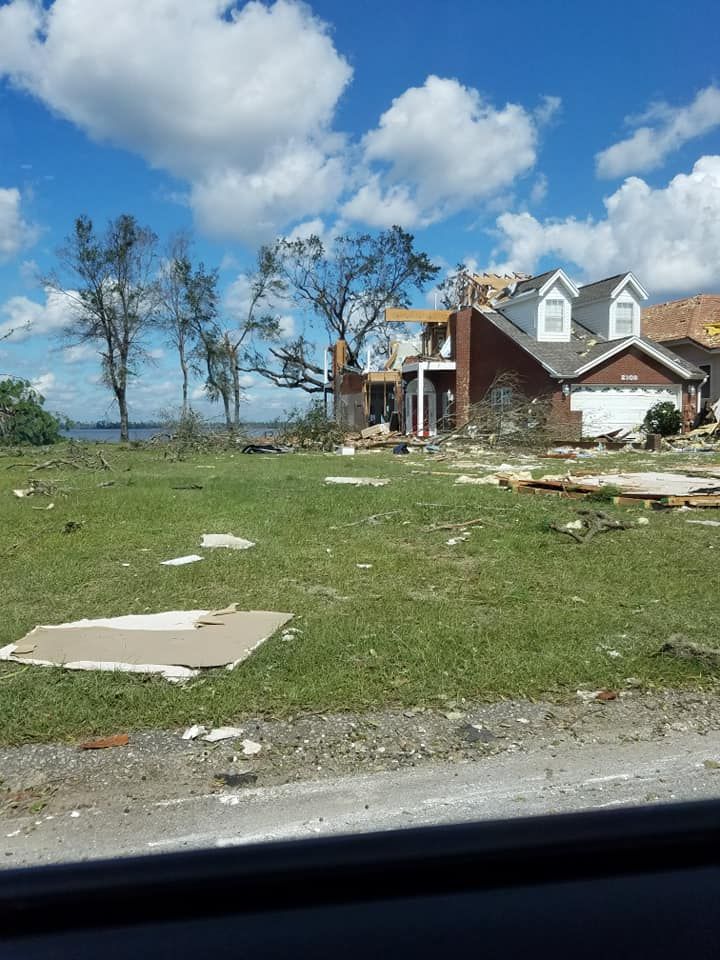
Hurricanes are a fact of life in Panama City Beach. Beyond roof shingles and fences, storms can quietly damage your HVAC system, leading to higher bills, poor air quality, and premature failures. Here’s what happens, what to check, and how to protect your equipment before and after a storm. How Hurricanes Harm HVAC Systems Salt spray + winddriven rain: Forces salty moisture deep into coils, electrical connections, and motors. Salt accelerates corrosion and reduces heat transfer efficiency. Flying debris: Dents fins, bends fan blades, and can puncture coils or damage the condenser cabinet. Flooding + storm surge: Submerges electrical components, contaminates oil, and can short control boards in the outdoor unit and air handler. Power issues: Lightning and grid instability cause surges that fry capacitors, boards, and compressors. Brownouts make motors overheat. Extended outages: High indoor humidity leads to mold risk, swollen doors/trim, and musty odors if the home can’t be dried out quickly. PreStorm Checklist (HomeownerSafe) Shut it down if flooding is likely: Turn the system off at the thermostat and the breaker before landfall. Clear the area: Remove furniture, grill covers, and loose items within 3–4 feet of the condenser. Document condition: Take photos of model/serial labels and overall unit condition for insurance. Surge protection: Install a whole home or unit level surge protector and verify your generator has a proper transfer switch (no back feeding). Filter & drains: Replace the filter and treat the condensate line so the system is ready to dehumidify when power returns. Avoid wrapping the condenser in plastic; it traps moisture and promotes corrosion. Use only manufacturer approved guards or hail screens if applicable. PostStorm Safety Steps 1. Visual check first: Look for standing water, oil stains, bent fan blades, crushed lines, or cabinet damage. 2. Rinse salt off coils: With power still off, gently hose the outdoor coil with fresh water from top to bottom. 3. Do not start a flooded unit: If water reached the base of the condenser or air handler, keep the breaker off and call a professional. 4. Listen & smell on restart: After power is stable and you’ve confirmed there’s no visible damage, restore power and listen for grinding, buzzing, or burning smells—then shut it off and call if anything’s abnormal. 5. Dehumidify quickly: Run AC in “Cool” with a moderate set point (74–76°F). If available, run a wholehome dehumidifier to pull RH below 55% and inhibit mold. LongTerm Storm Hardening for PCB Homes Elevated, anchored pads and hurricane tie downs Coastal-rated coils and anticorrosion coatings Unit level surge protection and locked disconnects Float/overflow safety switches on air handlers Duct sealing to prevent moist air infiltration Smart thermostats with remote humidity alerts (ideal for rentals/second homes) How A Superior Air Conditioning Company Helps Our coastal program combines storm ready installs, preventive maintenance, and post hurricane inspections. We clean and test coils, verify electrical integrity, measure temperature split/static pressure, and document findings for your records and insurer. If replacement is smarter than repair, we specify coastal ready systems engineered for Panama City Beach conditions. Have storm concerns—or need a post hurricane inspection? Contact A Superior Air Conditioning Company. We’ll protect your comfort, your equipment, and your peace of mind before the next storm season. Inspecting Indoor Air Quality After a Storm When storms hit the Gulf Coast, the biggest HVAC risk isn’t just mechanical—it’s indoor air quality (IAQ). Power outages, roof leaks, and flooding drive humidity up, invite mold, and spread contaminants through ducts. Use this guide to assess and stabilize IAQ safely after a storm. First 24 Hours: Quick Triage Safety first: If you suspect electrical hazards, gas leaks, or sewage contamination, stop and call a pro. If the HVAC or air handler was flooded, keep power OFF at the breaker and do not restart. Document water lines, wet areas, and any obvious damage for insurance. Step by Step IAQ Check 1. Measure humidity. Use a simple hygrometer; target ≤55% RH. Once utility power is stable, set the thermostat to Cool (74–76°F) with the fan on AUTO so the system can dehumidify. 2. Look, then smell. Check closets, behind furniture, around supply/return grilles, and near windows for spots, streaks, or musty odors. 3. Replace filters. Discard wet or clogged filters immediately. Consider MERV 11–13 only if your system can handle the added resistance. 4. Clear the condensate path. Confirm the drain pan isn’t overflowing; treat the line via the cleanout with a cup of white vinegar to deter algae. 5. Assess ducts. In wet attics or crawlspaces, flex ducts can wick moisture or disconnect. If you see standing water or collapsed runs, don’t operate until inspected. 6. Ventilate strategically. When outdoor air is drier than indoors, crossventilate for short periods. Otherwise, keep the home closed and focus on dehumidification. ShortTerm Air Cleanup Run portable HEPA purifiers in bedrooms and living areas. Rinse the outdoor coil with fresh water (power off) to remove salt spray. Avoid ozone generators and unproven fogging; they can irritate lungs and damage materials. When to Call a Professional RH won’t drop below ~60% after 24–48 hours. Visible mold larger than a small patch or persistent musty odor from vents. Flooded air handler, tripped breakers on restart, or ice on refrigerant lines. Sensitive occupants (asthma, elderly, infants) are in the home. How A Superior Air Conditioning Company Helps Our post storm IAQ service includes humidity/dew point measurements, temperature split and static pressure readings, coil and blower inspections, condensate cleaning, and duct leakage assessments. We provide documented findings, recommend whole-home dehumidifiers, rightsized filtration, and (when needed) professional coil cleaning and duct repairs as well as duct sealing with Aeroseal. We can also configure smart thermostat humidity alerts for second homes and rentals. Need an expert eyes on after the storm? A Superior Air Conditioning Company serves Panama City Beach, Panama City, 30A, Destin, Fort Walton Beach, and nearby communities. Book your post storm IAQ inspection today.

HVAC Emergencies in Downtown Panama City Whether you’re looking at an emergency call in a downtown Panama City cottage in the historic St. Andrews area or a high-rise overlooking Panama City near the Marina Civic Center, every minute matters when your system breaks down or gets damaged. At A Superior Air Conditioning, we strive to provide quick, dependable solutions to keep homes and businesses safe, comfortable, and functional. Downtown Panama City HVAC Emergencies Don't Wait – Neither Do We! Whether it’s the sweltering bomb cyclones of summer or a freak blizzard in winter, a malfunctioning HVAC system can be dangerous to our health and well-being. Service to Downtown Panama City for 15+ years. We've helped save the day with: Spring break midnight AC breaking. It’s so cold here! - Broken heating in old houses. Storm-flooded units in low-lying areas such as Millville. Common Downtown HVAC Emergencies 1. AC Breakdowns in Historic Homes Problem: Aging systems in 1920s bungalows can’t keep up with humidity, and the ductwork is outdated. Case Study: A cottage on Harrison Avenue lost AC during 100̊ weekend and mold grew. Our Fix: Temporary window unit, duct sealing, humidity-control system. 2. Commercial HVAC Failures Problem: Restaurants and stores on Beck Avenue are losing money and customers. Case Study* The AC stopped working at night at the Downtown Crab Shack during a busy Friday dinner service. Our Fix: Installed a new capacitor in 18 minutes saving $3,000 in lost revenue. 3. Storm-Related Damage Problem: Outdoor units that are flooded or power surges following summer storms. Solution : Immediate water extraction, as well as surge protection and electrical repairs. Why Spend Quality Time with Emergency Dentists in Downtown? Rapid Response Times 60 Minute-Emergency Service whether you’re an existing customer or it’s the first time you’ve had a problem, you can rely on iPlumb, LLC to rapidly dispatch a technician to your location. Covers: St. Andrews, Downtown Marina, Glenwood, Millville, and Cove Boulevard. Experienced Old and New Systems collapsed. Expert "Old" and "New" Systems. Historic Homes: Save character and update systems. High-Rises: Condo licensed units like The Legacy Tower. Storm-Ready: Salt-resistant components and surge protection. Transparent Rates 24/7 $129 Emergency Diagnostic Fee (credited to your repair). Most Repairs $200–$600 with up-front quotes. What to Do In Case Of HVAC Emergency 1. Shut Down the System: Limit more damage from electrical problems. 2. Issues to Rule Out Immediately: Tripped breakers? Frozen coils? 3. Contact Us Now: (850) 258-3225 - Assistance on the way. 4. Don’t Do It Yourself: You should leave dealing with refrigerant leaks and live wires to the experts. Emergency Services We Provide 24/7 AC Repairs Compressor replacements. Refrigerant leak repairs (EPA-certified). Thermostat malfunctions. Heating Emergencies Furnace ignition failures. Heat pump reversal problems on cold snaps. Critical System Components Replacements of capacitors and blower motor. Ductwork patching. Electrical wiring repairs. Storm Damage Support Pumping out water in flooded units. Post-power surge diagnostics. Customer Testimonials “Our art gallery went without heat at a winter event. -A Superior A Superior restored comfort in 2 hours. – Clara T., Harrison Ave. "They repaired our condo AC at midnight over spring break. Lifesavers!” –Mark R., Aqua Tower. Commercial HVAC Services in Panama City FL 24/7 Emergency Repairs Reduced Downtime Same day fixes on RTUs, aplit systems, and VRF. Planned Maintenance Programs Monthly/Quarterly Plans: Clean coils, inspect electrical, check refrigerant. Salt Air Resistant: Frequent rinsing and anti-corrosive finish. Replacement, Retrofits and Design Build Energy efficient replacements (ECM motors, VFDs, smart controls). Florida Building Code-compliant installations. Measurement of Indoor Air Quality & Humidity Solutions: Dehumidifiers for the whole home, air cleaners with UV light, MERV 13 + filters. Built for the Gulf Coast Stainless Steel and galvanized hardware to fight back salt corrosion. Why Businesses Choose Us LOCALLY & VETERAN OWNED: We strive for a clear and safe communication. Clear Pricing - We show you our costs, no hidden fees, photo and data reports. Code Compliance: Knowledge of multi-unit residential and commercial codes. No More Risking Downtime– Call Us Today! 24/7 Emergency Hotline: (850) 258-3225 Service Areas: Downtown Panama City, Millville, Cove Blvd and the surrounding communities. Exclusive Offer: Say “DOWNTOWN EMERGENCY” for $50 off repairs + free air quality check! Whether it’s historic homes or thriving businesses, we are your reliable HVAC source in Panama City.
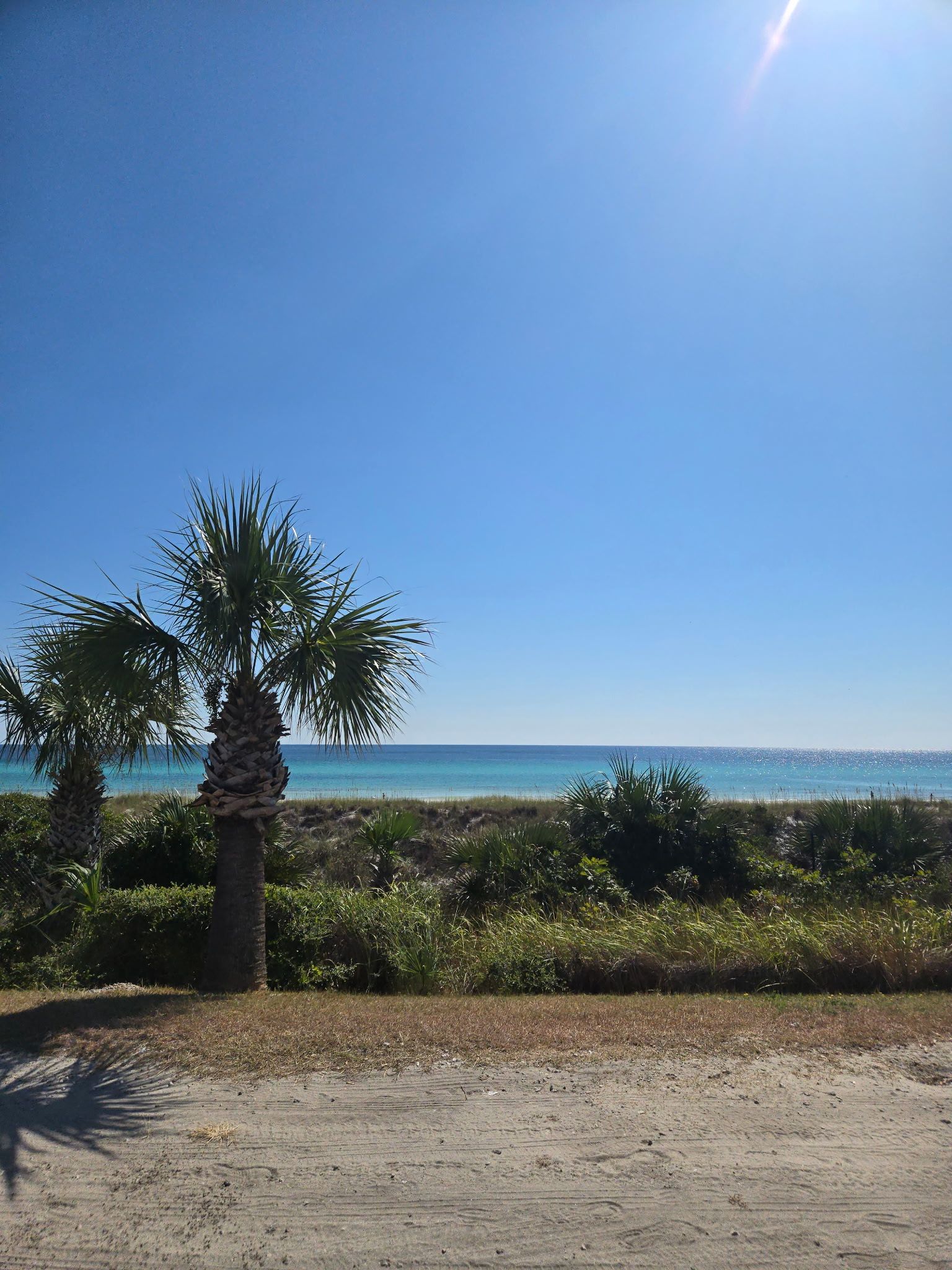
Life in Lower and Upper Grand Lagoon comes with beautiful waterfront views and coastal living – but with the sea air comes specific challenges for your HVAC system. We’re A Superior Air Conditioning and we’re proud to bring you solutions that are designed to meet the unique needs of the waterfront areas of Panama City. Here is how to protect your home’s comfort and efficiency. Salt Air and Your Grand Lagoon HVAC System 1. Coil Corrosion Salt particles can corrode the aluminum and copper coils of A/C systems, diminishing cooling ability and leading to refrigerant leaks. 2. Electrical Failures Salt buildup on wiring, fan motors and capacitors hastens end-of-life breakdowns. 3. Clogged Drain Lines Condensation loaded with salt mixes with dust, creating sludge that blocks drainage and exposes to the risk of water damage. 4. Rusted Components Metal shutters, chocolates, bolts and joints rust due to early decay for deteriorated durability. Impact: Salt air can reduce the lifespan of HVAC systems by 3–5 years and lead to expensive repairs. 7 HVAC Hints for Grand Lagoon Waterfront Homes 1. Schedule Coastal-Focused Maintenance Biannual tune-ups with anti-corrosion treatments and salt-resistant lubricants. 2. Add a Coil Guard or Coating Epoxy-coat or apply aluminum guards to outdoor condenser coils. 3. Upgrade to a Coastal-Ready System Trane XL18i Coastal: Includes salt resistant coils, powder painted enclosures and sealed electrical controls. 4. Rinse the Outdoor Unit Monthly Rinse condenser lightly with fresh water to eliminate deposits of salt ( Do not use high pressure ). 5. Optimize Landscaping Clear vegetation 2-3feet around outdoor unit to prevent the accumulation of debris and ensure air flow. 6. Add a Whole-Home Dehumidifier Keep 40–50% humidity to fight off mold and take some pressure off your AC. 7. Consider Ductless Mini-Splits Get rid of drafts caused by the conventional, stationary ductwork. Turn on and off rooms as required to save energy with IcyBreeze Zoned Cooling. Protecting a Home in Lower Grand Lagoon – A Case Study The Challenge The Sanchez family’s 15-year-old air conditioner was coping with salt corrosion and humidity in their beachfront home. Our Solution 1. Also put in a Trane XL18i Coastal (rust resistant) system. 2. Installed a coil protection guard and a whole-home dehumidifier. 3. Established twice-a-year salt repellent services. The Results Longer life span than a regular system: 3-5 years longer than a regular system. Saving More: Save 20% on your energy bill with 95W energy saving. Whole Home Comfort: Add central Honey well humidifiers to your whole home systems to maintain a proper, comfortable humidity level throughout your home. FAQ: HVAC Services for Grand Lagoon Waterfront Properties Q: How frequent should I be maintaining my HVAC system? A: Twice a year, pre-summer and pre-winter, to care for salt damage and humidity. Q: Can I use an AC unit indoors? A: Do not do it, place outdoor units on the north or east side of the dwelling, to the extant practical, to reduce exposure to salt spray. Q: Do you also provide 24/7 emergency service? A: Yes! We answer within 2 hours to bring back your comfort. Q: What if my system is already rusted? A: We’ll determine if it can be repaired, or advise on a replacement that’s built to endure coastal conditions. Coastal-Ready Air Conditioners: Designed with Grand Lagoon in Mind Key Features RESISTANCE TO CORROSION: Brass nuts and mild steel fasteners, paint coated coils and water repellent electrical enclosure. Humidity: Of compressors that work at multiple speeds, and dehumidifiers are protected. Smart Technology: Wi-Fi controlled thermostats that alert you to humidity and leaks. Installation Best Practices Manual J Load Calculations: The Right size for energy performance. Surge Protectors: Protect against power surges caused by storms. Raised Installation: Raise units off pads in flood areas. Maintenance Essentials Reduce Coils Salt Build Up: Quarterly Cleanings: Remove Salt Outdoor Coils. Drain Line Treatments: Stop algae and sludge from forming. Protect Your Grand Lagoon Home Now! Don’t allow salt air to reduce the life of your HVAC system. And trust A Superior Air Conditioning Panama City’s coastal HVAC specialists, to have a solution that will stand up to the challenges of Gulf living. Call Now: (850) 258-3225 Schedule Online: [asuperiorac. com/grand-lagoon-hvac](https://asuperiorac.com/grand-lagoon-hvac) Bring in This Ad and Receive 10% Off a Coastal Tune-Up! Relax and bathe in waterfront living with a system engineered for salt and sun and wind.

Panama City Beach delivers sun, sand, and unyielding humidity under its tropical climate. The average humidity level in Coral Springs is over 70% all year round, causing homeowners to be at high-risk for mold. At **A+ Superior Mechanical**, we offer preventive measures to protect your home and health. Understanding the Humidity Challenge Climate Factors Gulf Influence: Humid, warm air from the Gulf penetrates into homes, generating condensation on walls, windows, and HVAC systems. Storm Susceptibility: Storms and hurricanes introduce water intrusion risks, resulting in the increased growth of mold inside attics, basements and crawl spaces. Health Risks Mold exposure can cause allergies, asthma, respiratory infections — and worse in children, the elderly, and people with weakened immune systems. Hidden colonies of mold can lurk out of sight until the property or occupants suffer structural damage or health symptoms. Effective Humidity Control Techniques 1. Dehumidifiers Whole-Home Devices: Keep indoor humidity at 30-50%. Mobile Choices: These options are best for damp locations, such as in navigation bathrooms and laundry areas. 2. Ventilation Strategies Run kitchen and bathroom exhaust fans. Open windows for air exchange on low humidity mornings. 3. HVAC Maintenance Replace filters monthly. Two tune-ups per year are a way of optimizing moisture removal. 4. Seal Leaks Check your roofs, windows, and plumbing. Fill gaps with weatherstripping or caulk. 5. Gutter Maintenance Keep gutters clean and work to drain water away from your foundation seasonally. Mold Prevention Strategies 1. Routine Inspections Inspect crawl spaces, basements and under sinks for early signs of mold on a monthly basis. 2. Timely Repairs Resolve leaks or flooding in ** 24–48 hrs ** to avoid mold growth. 3. Mold-Resistant Materials Use mold-resistant paint, drywall and insulation when remodeling. 4. Professional Evaluations Post-storm examinations and air quality inspections to determine hidden hazards. Building Trust & Value by Offering Professional IAQ Insight Why IAQ Matters The air in our homes can be **2–5x more contaminated** than outdoor air(EPA). Key contaminants: VOCs emitted by paints, cleaners, and building materials. Mold spores in moist spots. Particulates such as dust and pollen. Building Trust Through Transparency In-depth reports pinpoint potential hazards including post-storm mold or VOC spikes. Solutions: UV purifiers, dehumidifiers, or smart ventilation. Upselling Advanced IAQ Solutions Couple evaluations with personalized updates: HEPA filtration for allergens. UV-C lights that kill germs. Take Your HVAC Services to New Heights with Profitable IAQ Bundles Why Bundle IAQ with HVAC? Tackle what's under the hood while in regular maintenance (dust and humidity). Make choices easier for the homeowner with prepackaged solutions. Top IAQ Enhancements 99.97% HEPA filtration: Traps 99.97% of allergens. UV-C Germicidal Lights: Kill mold in ducts. Smart Air Purifier: Pair with wi-fi thermostats for real-time monitoring. Recurring Revenue Opportunities Have seasonal packages available (like a “Spring Allergy Defense” with duct cleaning) Hidden Dangers in Seaside Homes: Allergens & VOCs Coastal Allergies Mold & Mildew: Grows in damp places — look in attics and HVAC systems. Pollen: Enter from open windows, worse during the rainy season. Dust Mites: They live in humid bedding and carpets. VOC Threats Sources: Paints, adhesives, synthetic flooring. Risks: Headaches, respiratory irritation, long-term health problems. Proactive IAQ Management Ventilate: Employ exhaust fans and open windows judiciously. Use low-VOC products: Look for environmentally friendly paints and materials. Keep Humidity in Check: Use dehumidifiers to maintain levels under 50%. Make Your Coastal Comfort Secure! You don’t have to allow humidity and mold to ruin your Panama City Beach home. A Better Mechanical provides customized services for coastal issues. Call Now: (850) 258-3225 Schedule an IAQ Assessment: [asuperiorac.com](https://asuperiorac.com) Do it today: Say PCB IAQ and **save 10%** on whole-home air quality upgrades! Enjoy peace of mind and add value to your home with Florida’s most trusted HVAC & IAQ company.
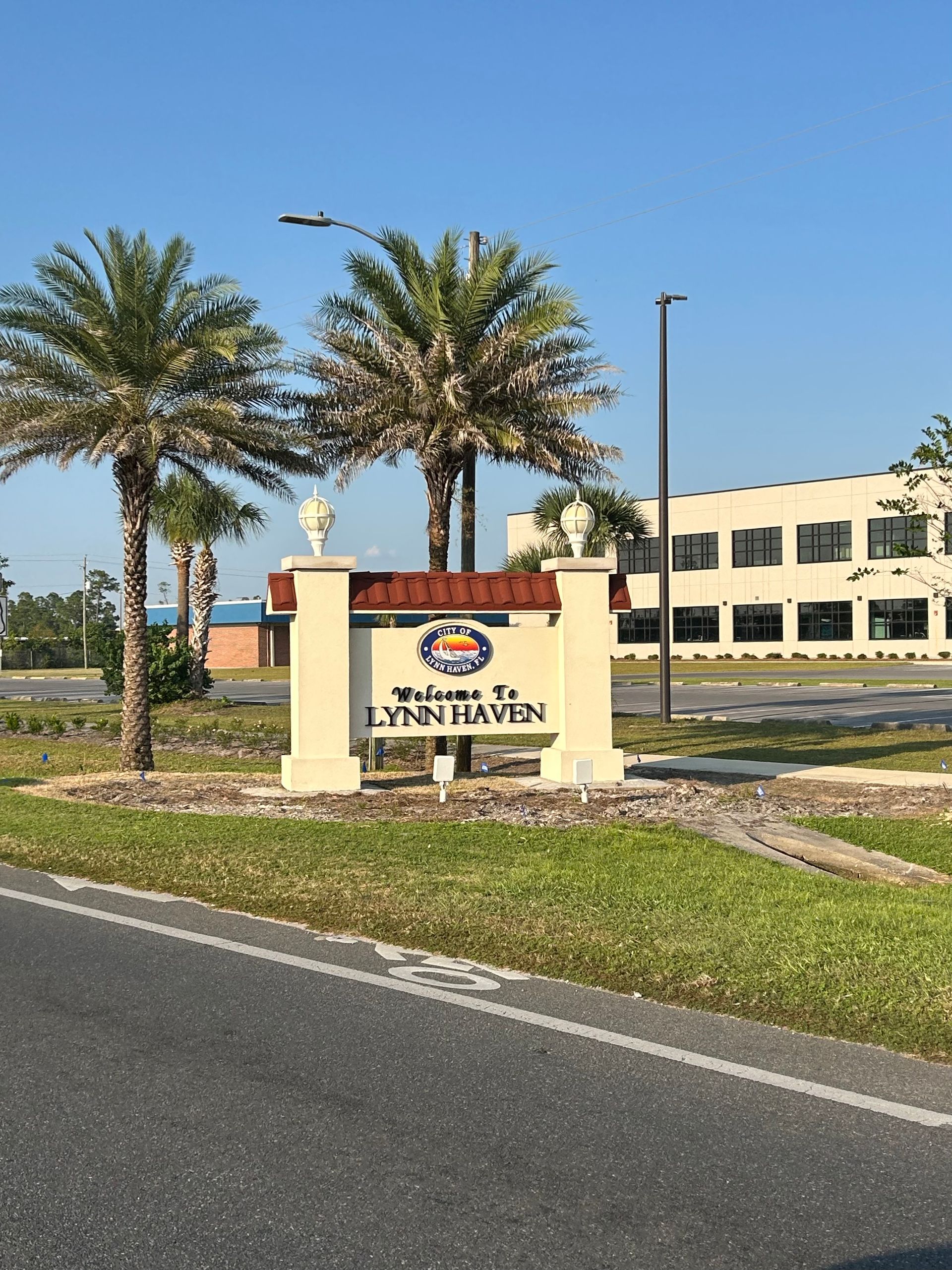
The historic beauty you will find in Lynn Haven has a downside: poor indoor air quality (IAQ) in older homes. From musty smells to mold, dated HVACs and Florida’s humidity set us up to be uncomfortable and unhealthy. You’ve Found the Right Place for a Healthy and Comfortable Home At A Superior Air Conditioning , our focus is making our Lynn Haven historic homes comfortable and safe for your family. Here’s how: How Older Lynn Haven Homes Are Hindered By Air Quality Older Lynn Haven homes seem to be very complicating when it comes to protecting indoor air quality. 1. Inadequate Ventilation Issues : Ductwork that is either the wrong size or leaking. Air leaks at windows/doors which allow outdoor pollutants inside. No kitchen/bathroom vent fans. Outcome : Stale, stagnant indoor air. 2. Obsolete HVAC Systems Issues: Filters dust, dander, allergens and more. Ineffective dehumidification leading to mold. Outcome: Stuffy air and a consistently moist dampness. 3. Elevated Indoor Pollutants Sources: Lead-based paint (pre-1978 homes). Asbestos in insulation or flooring. Carpets and furniture that are off-gassing VOCs. Result: Long-term health risks of toxic exposure. 4. Uncontrolled Humidity Issues: Window AC units not controlling moisture. Humidity levels exceeding 50–60%. Result: Mold, dust mites, clamminess. 5 Remedies to Enhance IAQ in Historical Lynn Haven Residences 1. Upgrade Your HVAC System Options: **High Eff Units**: SEER 16+ systems with advanced filtration. **Variable-Speed Motors**: Even airflow and reduces humidity. **Smart Thermostats**: Automatically control the temperature and humidity. 2. Enhance Ventilation Strategies: Caulk or use weatherstripping to seal air leaks. Apply whole-house exhaust fans or heat recovery ventilators (HRVs). Install bathroom/kitchen exhaust fans to vent moisture and odors. 3. Add Air Purification Technologies: HEPA Filters: Are capable to remove 99.97 percent of particles (above 0.3 microns). UV Germicidal Lights: Destroy mold, bacteria, and viruses in your ducts. Carbon Filters: Can remove VOCs and odors. 4. Control Humidity Tools: Whole-House Dehumidifiers: Keep between 30 and 50 percent humidity. Hybrid HVAC Systems: Integrate cooling and dehumidification. Smart Sensors: Notify you of high humidity spikes. 5. Switch to Eco-Friendly Products Tips: Paint with low-VOC paints and clean with non-toxic cleaning supplies. Swap carpets for hardwood or tile, which are less likely to trap allergens. Case in Point: Making Over the IAQ of a 1940s Bungalow The Problem An older HVAC system and lack of ventilation in an historic front-porch Lynn Haven home had resulted in mold, stale odors, and asthma attacks. Our Solution Replaced with a ** high efficiency HVAC ** with HEPA Filter. Patched blowing air leaks and included ** whole-house exhaust ventilation **. What we did: Installed the ** Whole Home dehumidifier ** and the ** UV Air Purifiers **. The Results **30% lower energy bills** . Mold and musty odors are a thing of the past. The homeowner’s child had less severe asthma symptoms. Why Select A Superior Air Conditioning for IAQ Upgrades? 1. Expertise in Historic Homes Restore and modernize with an eye on architectural integrity. 2. Comprehensive IAQ Strategies Tailor plans for ventilation, humidity and pollutants. 3. Energy-Efficient Upgrades Receive rebates on ENERGY STAR® systems. 4. Certified IAQ Specialists NADCA-certified professionals who have received training on the most current duct cleaning and HVAC restoration procedures. FAQs: How to Improve IAQ in Older Homes in Lynn Haven Q: What Does a Whole-Home IAQ Upgrade Cost? A: The average project is between **\$3,000–\$7,000** depending on home size and solutions. Q: Can I improve my IAQ slowly over time? A: Yes! We develop phased plans based on your budget and priorities. Q: Are IAQ upgrades adding value to the home? A: Absolutely. The modern HVAC and air purification are strong selling points. Q: How frequently should IAQ systems be maintained? A: Why Annual Maintenance is Required It ensures air quality and peak performance. Keep Your Lynn Haven Home More Comfortable Today! Make your vintage home a healthier haven with local IAQ solutions designed for you. Call Now: (850) 258-3225 Free IAQ Consultation: [asuperiorac.com/lynn-haven-iaq](https://asuperiorac.com/lynn-haven-iaq) Tell them “Lynn Haven IAQ” to Receive 10% Off Your Indoor Air Upgrades. No more musty air, just fresher, healthier air!
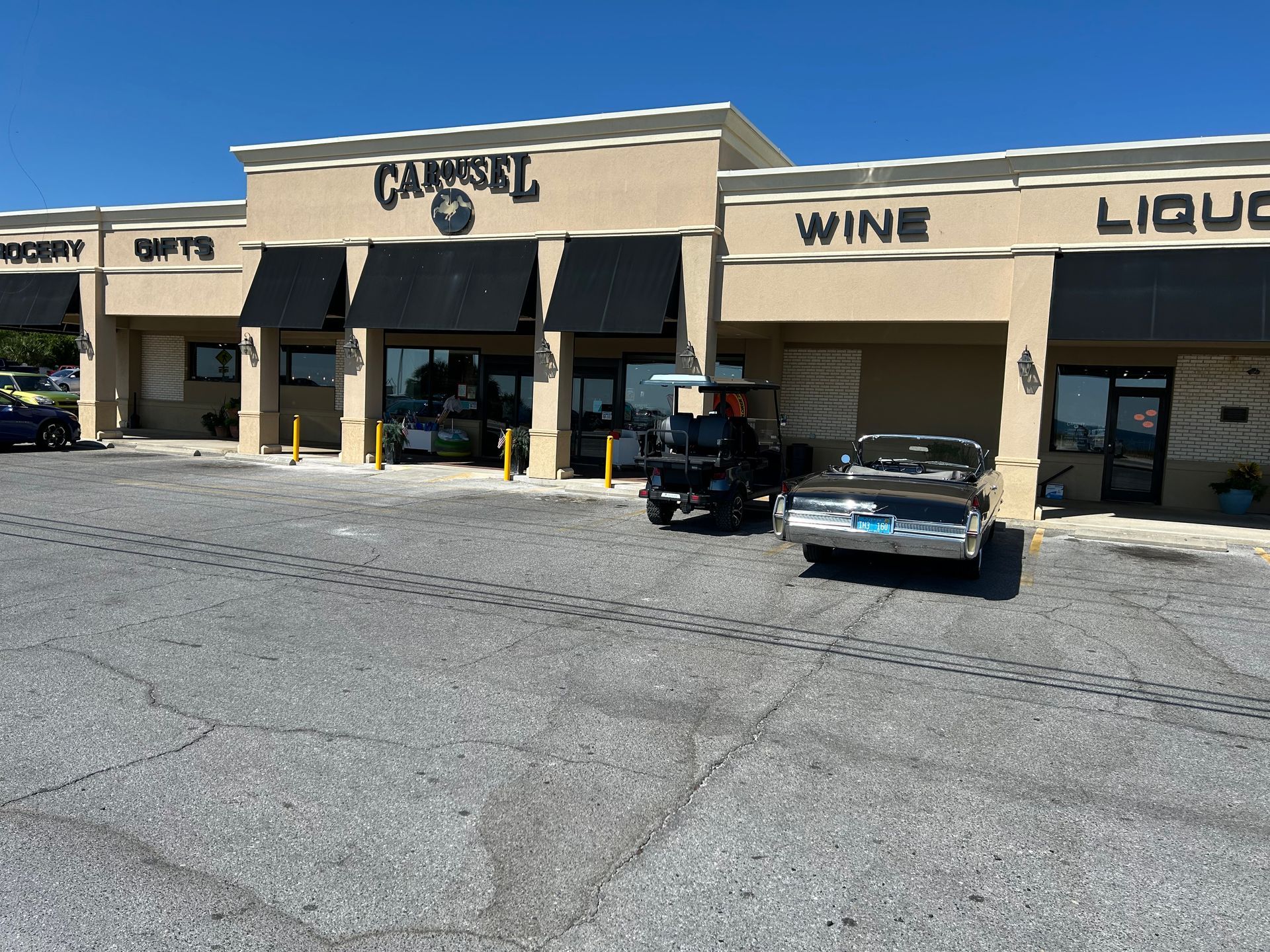
Panama City Beach is known for its beautiful views of the Gulf and abundant sun, but the salty air on the coast is quietly killing your AC. At A Superior Air , we’ve witnessed firsthand how salt water corrosion wreaks havoc on AC systems in communities such as Lagoona Beach, Lower Grand Lagoon, and near Pier Park. Discover how to identify salt damage early and prevent your well from failing too soon. How salt air corrodes AC systems Salt spray combined with Florida humidity produces a corrosive film on the outdoor components of AC. And here’s how it comes after you: 1. Coil Corrosion Salt erodes aluminum or copper coils, resulting to an inefficient cooling and leading to refrigerant leaks. 2. Electrical Breakdowns Wiring, fan motors, and capacitors corrode due to accumulated salt, resulting in immediate failure. 3. Blocked Drain Lines Salt mixed with dust turns into a muddy slush that stop up condensate drains and turns into leaks. 4. Rusting Cabinets Galvanized steel cabinets Will even rust over time which exposes internals to potential damage. Did You Know? Coastal AC equipment replace **2–3 years sooner than** inland equipment due to salt exposure (NACE) 5 Signs that Your AC is Damaged by Salt. 1. Reduced Cooling Power It can be difficult for corroded evaporator and condenser coils to transfer heat, meaning your home stays too warm. 2. Strange Noises Grating or grinding noises indicate corroded fan motors or loose parts. 3. Frequent Repairs Replacing capacitors or contractors yearly? Failures in electrical lines, most likely caused by salt, are said to be the most likely cause. 4. Visible Rust or Green Patina Inspect the cabinet and coils of your outdoor unit for discoloration or corrosion. 5. Rising Energy Bills An old AC has to work harder, driving up your energy bills. How Do You Protect Your AC from Panama City Beach Salt Air (Expert Tips) 1. Schedule Coastal-Specific Maintenance Standard HVAC maintenance isn’t enough. Our Panama City Beach tune-ups consist of: Anti-rust lubricant for engines and electric components. Flushing of drains to prevent build up of salt blockages. Non abrasive coil cleaning, to take away salt scale. 2. Install Coil Guards or Coatings Coil guards : Guards are used to protect fins from salt spray. On older units : Stop rust before it happens! 3. Invest in an HVAC System That’s Coastal-Ready The newest models (e.g., the Trane XL18 Coastal ) offer: Salt-resistant aluminum coils. Powder-coated cabinets. Sealed electrical components. 4. Rinse Your Unit Monthly Carefully rinse outside of condenser with clean water to clear off salt. *Avoid high- pressure sprays! 5. Optimize Landscaping Trim plants and remove any debris within two feet of the unit for better air flow and less salt build up. Know Why Panama City Beach Homeowners prefer A Superior Air Conditioning. We’ve provided PCB with service for 22+ years , protecting systems in Pier Park condominiums, Grand Lagoon houses and St. Andrews homes. Our Coastal Promise: Free corrosion inspections for local homeowners. 24/7 emergency repairs to keep the heat at bay. Straightforward recommendations : We propose repairs or installations according to your budget. Prompt: Salt Air And AC Systems in Panama City Beach - Frequently Asked Questions Read More Q: How many times should I get my coastal AC unit serviced? A: Every six months — before summer and after storm season. Q: Can I have my air conditioning put indoors to prevent it from getting damaged by salt? A: No. Instead, install outdoor units on the north/east side of the home, so they’re not hit head-on by the salt spray. Q: Do you clean rentals in beach.There any near Shipwreck Island.? A: Yes! We work with property managers accustomed to delivering comfortable stays. DIY air conditioning goop for coastal homes Here is how to make your AC last: 1. Replace Air Filters Repeat this process every 1–3 months with MERV 8–11 filters. 2. Clear Vents and Returns Dust air vents and make sure furniture isn’t obstructing airflow. 3. Clean the Outdoor Unit Turn off power. Clean debris and wash fins carefully. 4. Check the Condensate Drain Monthly, pour 1 cup of vinegar down the drain line to minimize blockages. 5. Inspect Ductwork Tape gaps with mastic tape, and make sure attic ducts are insulated. When to Call a Pro: Refrigerant leaks. Electrical issues. Deep coil cleaning. Let Salt Air Not Ruin Your Comfort — Call Us for a Tune-Up Today! Keep your A/C covered with our ** Anti-Corrosion Maintenance Program* * for Panama City Beach’s tough elements. Call Now: (850) 258-3225 Book Online: asuperiorac.com/panama-city-beach-ac-repair(https://asuperiorac.com/panama-city-beach-ac-repair) Keep it cool, save money, and prevent salt-born breakdowns. Trust PCB’s HVAC experts!
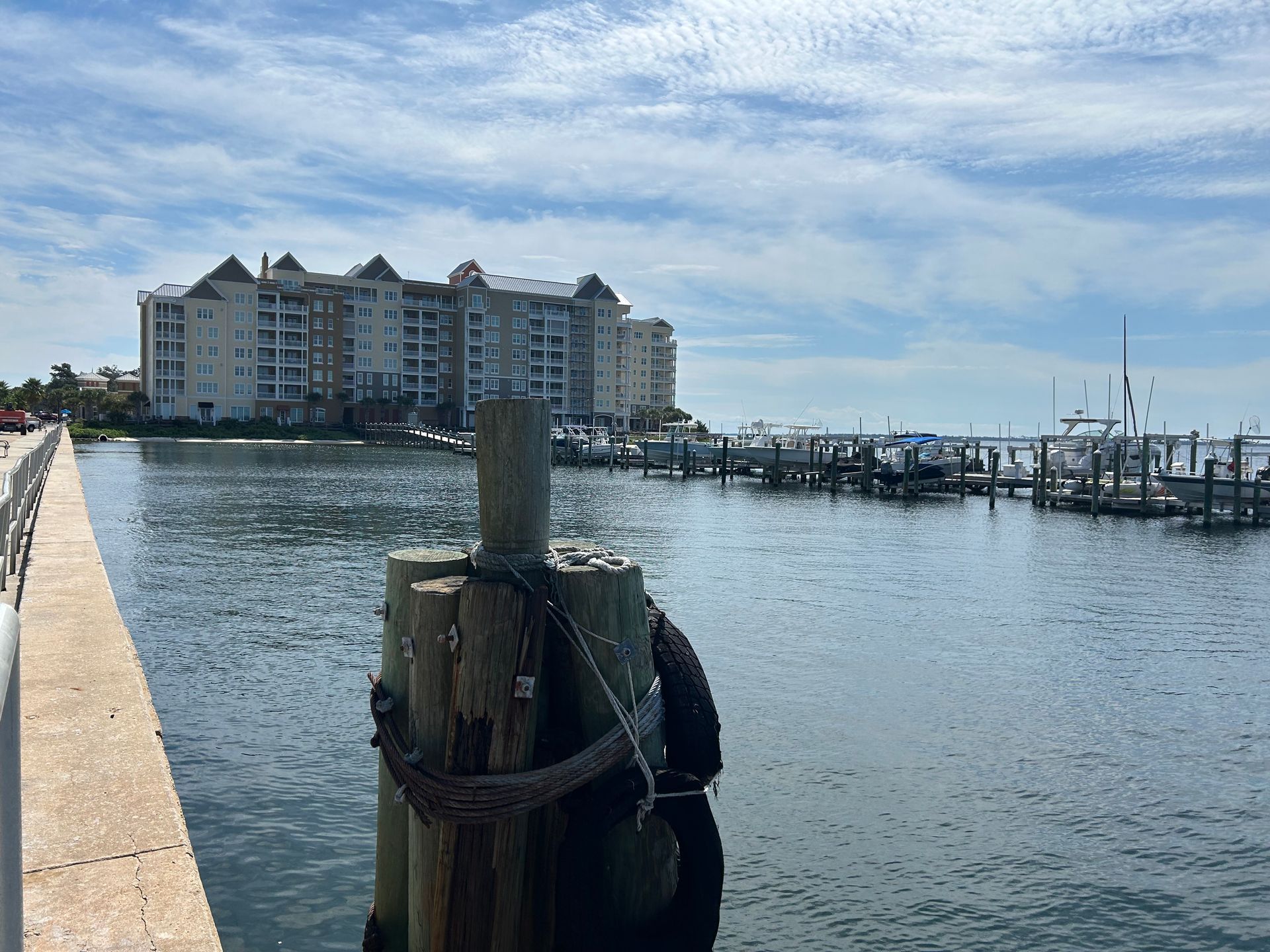
Panama City Beach (PCB) is a dreamscape for sun-worshipping vacationers, who revel in Pier Park’s shops by day and Shipwreck Island Waterpark’s rides after the sun goes down. But when you’re sweating it out in the heat of Florida, a broken air-conditioning unit can make your dream vacation — or your rental home’s reputation — feel like a nightmare. At A Superior Air Conditioning, we excel in quick, dependable AC service and preventive maintenance for homes, investment properties, and commercial locations near the best of what PCB has to offer. Here’s how we keep locals and visitors chilled when it counts the most. Why AC Repair Near PCB Attractions Calls for Expertise 1. Proximity to High-Traffic Tourist Zones Fla. Homes and rentals close to Pier Park and Shipwreck Islands have their own challenges: 24/7 usage: Air conditions are cranked up around the clock to fight heat and humidity. Salt air corrosion: Beachfront homes off Thomas Drive or Front Beach Road combat rusted coils and electrical conduction problems. High guest turner: You need your air clean and your cooling functioning flawlessly for vacation rentals if you want to avoid bad reviews. 2. the owners of a vacation rental can ill afford lost time A/C is busted and it’s the goldilocks temps, because: Lost bookings and refund requests. Bad reviews that damage future income. High-demand emergency repair fees. 3. Storm Vulnerability Summer storm systems near PCB, and water or wind damage, may flood units, cause a loss of power, or clog systems with debris. And fast fixes are important to prevent mold and long-lasting damage. Best 5 AC Services Near Pier Park & Shipwreck Island 1. 24/7 Emergency Repairs When your AC stops working in the middle of a heatwave, every minute is crucial. We answer in less than 90 minutes to repair: Blown capacitors or tripped breakers. Frozen coils from refrigerant leaks. Salt-corroded wiring or condenser units. 2. Pre-Season Maintenance Plans Don’t get a mid-summer crash – get our PCB Attraction Special : Clean your coils and have the sand, salt and debris cleaned out. Aeroseal Duct sealing (We were one of the first HVAC companies in Knoxville to use this technology). Thermostat calibration for optimal efficiency. Bonus: Book by May 1 and receive 10% off + FREE air filter bundle. 3. Vacation Rental HVAC Programs Specifically designed for locations in proximity to PCB attractions: Bi-annual tune-ups (pre-summer and post-storm). Tamper-proof settings with smart thermostat installs. Service priority to correct issues before guest arrival. 4. Storm Damage Recovery After summer storms, we: Joe Donor: Pump water out of outside units that have flooded. Install new components such as surge-smoked capacitors and circuit boards. Mold killer and mildew killer kills mold and mildew on contact and is also effective in preventing mold and mildew on surfaces. Clean ducts to eliminate mold There’s the rub: chemical solutions can clean surfaces and kill spores, but nothing can prevent mold spores from getting into the air ducts within a workspace or home. 5. Energy-Efficient Upgrades Slash utility bills with: AC units with an inverter that react to occupancy. Multileveled rentals with zoned cooling. UV air purifier that all but removes allergens and odors. Case Study – Rescue at Pier Park Rental Property The Crisis An air-conditioned, five-bedroom vacation home half a mile from Pier Park lost AC in the middle of a July heatwave. With visitors due in 6 hours, the homeowner was looking at: $1,200 in potential refunds. Panicky 1-star review risks. A compressor destroyed by salt corrosion. Our Solution Showed up 75 min later and troubleshoot problem. Changed the compressor and added a gene resistant to salt. Charging description Cleaned clogged drain lines, and installed a smart thermostat. The Result Cooling was back on 2 hours before check-in. One guest wrote a 5-star review raving about “ice-cold AC.” The owner signed up for our Rental Owner Protection Plan for future protection. Typical AC Problems Near PCB Attractions (And How We Solve Them) 1. Salt Air Corrosion Problem: Coils, wiring, electrical panels get rusty in the coastal humidity and salt. Solution: use corrosion resistant coatings and components; materials. 2. Clogged Drain Lines Issue: Algae buildup from high humidity clogs drains and leads to leaks. Fix: Hydro-jet drains and add algae resistant tablets. 3. Overworked Compressors Issue: Compressors burn out when nonstop cooling needs near Shipwreck Island are required. Fix: Install variable-speed compressors, and improve insulation. 4. Thermostat Tampering Problem: Frequent fiddling with temperatures wreak havoc on systems. Fix: Replace with locked smart thermostats that can be remotely monitored. 5. Post-Storm Electrical Surges Issue: Bolts of lightning destroy HVAC electronics on North Lagoon Drive. Fix: Whole-home surge protectors; fast capacitor replacements. Why Pick A Superior Air Conditioning Near PCB Attractions? Local Expertise 20+ Years of Service: How does beach weather affect your A/C and heating systems? The rush for repairs for vacation rentals. City codes for properties near conservation areas. Faster Response Times Depot: Panama City Beach30 minute arrive and drive track 90-minute fast food emergency service Included. Same-day appointments for pre-storm tune-ups. Rental-Owner Focused Repairs after hours, so as not to inconvenience guests. Detailed service reports for managers/owners of properties. Transparent Pricing No sneaky fees — receive quotes upfront by text or email. Finance options for new installations. 3 Ways to Avoid AC Disasters Close to PCB Hotspots 1. Schedule Pre-Summer Maintenance Clean coils and check refrigerant levels before the peak tourist season. 2. Upgrade to Smart HVAC Tech Remote monitoring and outage alerts for rentals with smart thermostats. 3. Install Surge Protectors Protect your AC from Gulf Coast thunderstorms. Don’t Get a Broken AC Mess with Your PCB Fun! Whether you’re entertaining in your home near Shipwreck Island or taking a break from the heat in a house near Pier Park, A Superior Air Conditioning is there for you with speedy service you can rely on. From 24/7 emergency repairs and coastal-ready equipment to years of vacation rental service, Panama City Beach trusted HVAC Partner. Act Now to Save! Call Today: (850) 258-3225 Book Online: asuperiorac.com/pcb-ac-repair Special Offer: Enter “PCB COOL 100” at checkout for $100 off
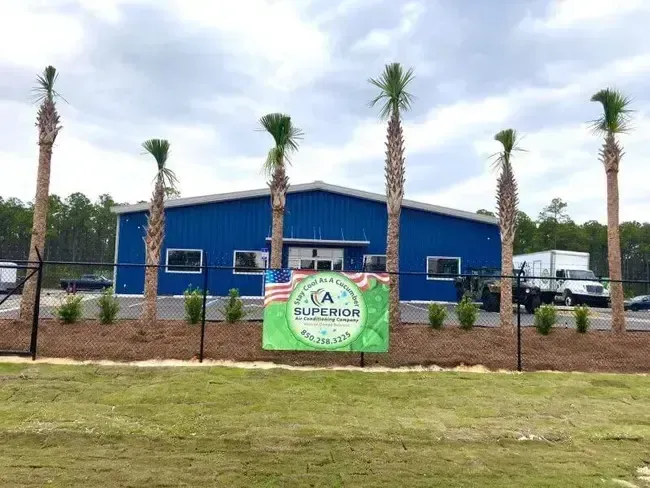
Why Waiting on Air Conditioning Repair in Panama City, FL Is Not an Option The coastal climate of Panama City is tough on HVAC systems: Salt air will cause coils and electrical components to corrode. Increased humidity can stress compressors and create mold in ducts. Summer storms lead to power surges and debris damage. Overlooking small repair needs can result in 4x more costly repairs later on. 5 Indications That Your Air Conditioning Demands Immediate Attention 1. Weak or Warm Airflow What’s Wrong: Dust-clogged or obstructed air filters or ducts. Bad blower motor or leaking refrigerant. Evaporator coils are frozen due to not enough refrigerant. Panama City Risks: Pollen and dusty Gulf breezes clog the filters so fast that they fail to work effectively. What to Do: Change your filters monthly (select MERV 8-11). Make an appointment for duct cleaning to eliminate mold or debris. Give us a call for refrigerant testing and motor examination! 2. Unusual Noises What’s Wrong: Grinding: Failing motor bearings. Hissing: Refrigerant leaks. Banging: Loose or broken parts. Local Context: Salt corrosion near St. Andrews Bay will wear on your metals, too. What to Do: Shut down the system to avoid further damage. Let our techs troubleshoot and replace any worn parts. 3. Sky-High Energy Bills What’s Wrong: Dirty coils or a duct that is leaking causing the AC to work extra hard. Aging unit losing efficiency. Panama City Impact: The humidity makes AC's run longer and even less efficient. What to Do: Schedule a tune-up to clean coils and duct sealing. Update to a SEER 16+ model that is more energy efficient. 4. Frequent Cycling (Turning On/Off) What’s Wrong: Large capacity unit not sized properly for the home. Your thermostat is defective or has an electrical problem. Refrigerant leaks disrupting pressure. Local Angle: Thermostats for sun-pocked windows (frequent in PCB houses) might misread temps. What to Do: Put in a smart thermostat with remote sensors. Time to check refrigerant and electrical connections. 5. Foul Odors or Moisture What’s Wrong: Musty smells: Mold in ducts or drip pans. Burning smells: Electrical shorts or overheating. Puddles around the unit: Drain line is plugged up or refrigerant leak. Panama City Risks: Elevated humidity leads to the rapid growth of mold in ducts, which degrades indoor air quality. What to Do: Kill mold spores with UV air purifiers. Call us to unclog drains and check wiring. Why It Is Important To Have Repairs Made In A Timely Manner In Panama City? Prevent 24/7 emergency fees: Replace a capacitor now for lower cost than the repair bill after the inevitable weekend crisis. Stop mold from taking over your home: With backed up drains, your floors and walls are getting damaged by the flood. Protect your budget: ACs that are serviced last 5-10 years longer, extending the time before you need to replace and spend more money. Case Study: Saving a North Laguna Beach Home The Crisis: A North Laguna Beach family didn’t bother to address the clanging and hammering until their AC went down in the middle of a 95°F heat wave. The culprit was fan blades corroded by salt and a refrigerant line that had leaked. Our Fix: Changed out fan motor and refrigerant line. Recovered condenser with coating, covered with antirust paint. Put in surge protector to protect from storms. The Result: Cooling back up in 2 hours. 30% reduction in energy bills after repair. It now comes with a 10-year corrosion warranty. 5 Tips on Selecting an AC Repair Service in Panama City Look For: 24/7 emergency service (heatwaves don’t give a moment’s notice). Coastal HVAC expertise (salt-resistant components, storm prep). Clear pricing (no hidden charges). Red Flags: No license or insurance. Pushy upsells on unnecessary parts. Slow response time (more than 4 hours). Don’t Mop in a Panama City Summer! Finding AC problems early spares you from spending more money, and saves you stress and your sanity. At A Superior Air Conditioning we know the specific concerns that you or your business may have when it comes to controlling your comfort level. Call Today for Same-Day Service: (850) 258-3225 Book Online and Save: asuperiorac.com Limited Time Offer: Just refer to “PCB COOL 50” for $50 off on any repair. Keep your cool, save money, and prolong the lifespan of your AC — call today to schedule your inspection.
